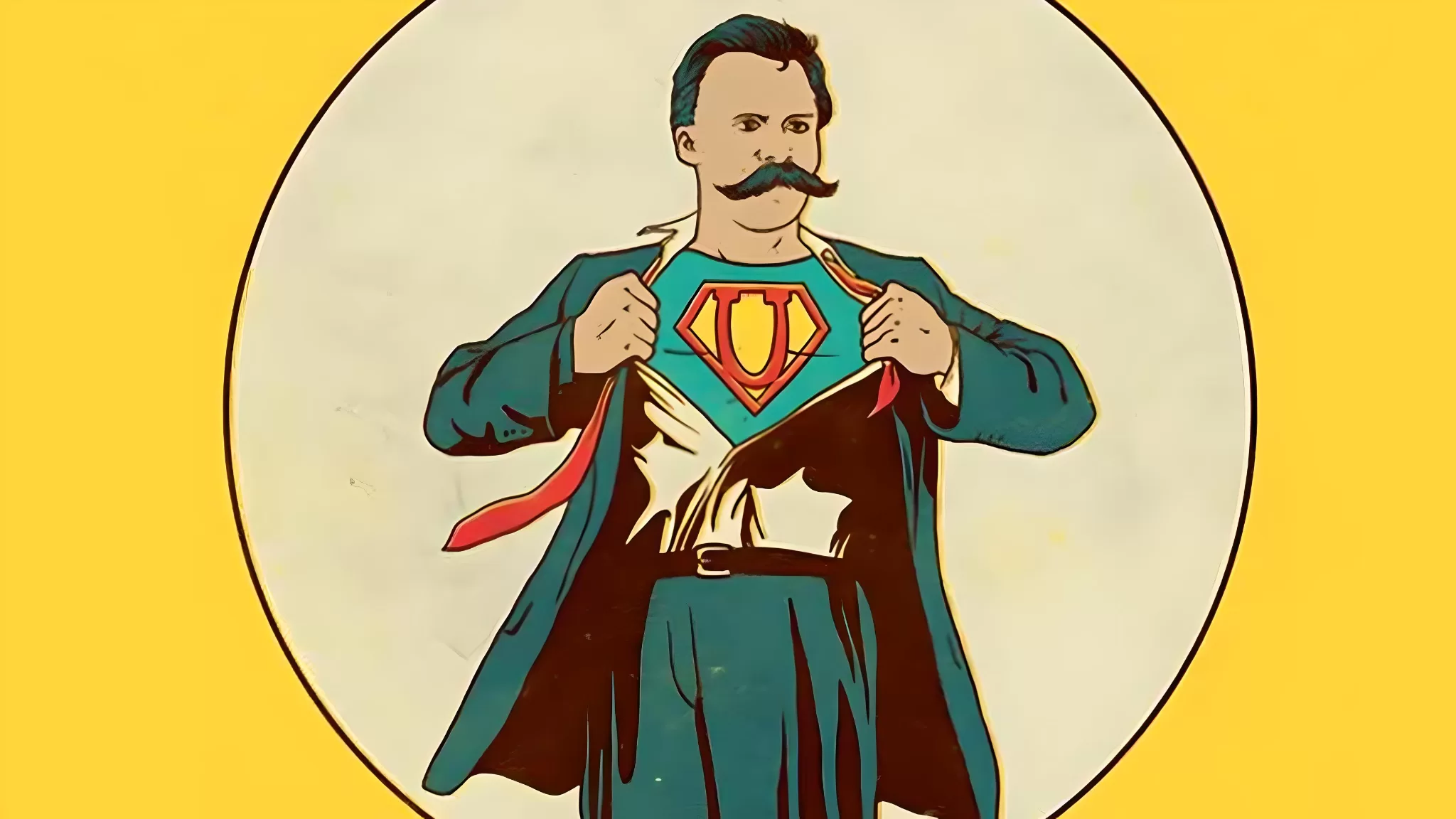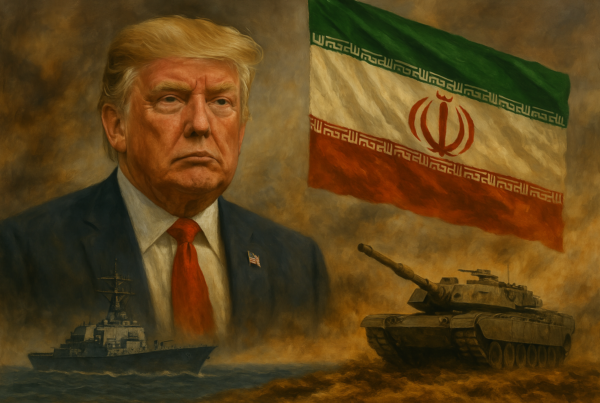It is quite fitting that Nietzsche has posthumously risen to God-like status among many of the inhabitants of the rightwing political and spiritual spectrum, as we find ourselves today in an age marked by the lack of higher values. His rise in popularity is, however, rather peculiar, as Nietzsche himself claimed not to write for the masses. In fact, he very much loathed the masses.
His style was aphoristic, meaning he did not write like traditional philosophers. Nietzsche did not formulate his ideas in the form of a thesis and elaborate arguments. Instead, he wrote in short segments that did not necessarily have any relation to other segments on the same page. The only book he wrote with an arch-like theme that is to be found throughout the book is Thus Spake Zarathustra. This style of writing makes it hard for the reader to get the full depth and breadth of the ideas behind the writings, as they are presented diffusely. Nietzsche himself commented thus:
One does not only wish to be understood when one writes; one wishes just as surely not to be understood. … [Some authors] did not wish to be understood by “just anybody.” (Gay Science 381)
Well, Nietzsche sure did succeed in not writing for everybody. His writings and ideas are so diffuse that there is vigorous academic debate on what he meant to say up to this very day. It is fitting of Nietzsche’s character that he claimed there was no philosophy before him and that those who do not understand his writings are not the readers he wants. There are numerous writers that really are not for the masses, Evola being another example. But we can hardly accuse Evola of writing diffusely. Evola writes profusely about metaphysics, which is a difficult subject on its own, but he spends entire books elaborating on what he means to say and even gives conclusions. One can therefore not argue that he does not present his case in unclear ways. With Nietzsche, I feel the expressed derision of those incapable of fathoming him is just a pompous and theatrical way to shy away from criticism of his writings. This is analogous to me saying that if you don’t get this article, you are a mouthbreather.
Because of his style of writing, some argue that he was not a philosopher to begin with. I think that goes too far, as he did have some philosophical ideas and concepts that recurred in many of his works. Many praise Nietzsche for his brilliant critique of Christianity and liberalism, and his “prophecy” of nihilism has proven poignantly evident in our time, that much is for sure. But Nietzsche was certainly not alone in making these observations, his famous contemporary Marx being another fierce critic of those themes, for example. I’ll leave Nietzsche’s analysis of his age, therefore, for what it is and specifically address the doctrines that Nietzsche did try to convey, albeit clad in robes of pretentious exclusivity.
The Superman
I think a lot of the contemporary hoopla about Nietzsche is because of the Platonic attraction many experience to the term superman. In fact, I posit that the term superman is the most powerfully attractive idea among the doctrines of Nietzsche. When I hear people speak about Nietzsche’s superman, it is often quite obvious they have picked up some superficial Redbeard-Might-is-Right vibe from the soundbites they heard and the pithy quotes they read. The term and its shallow comprehension arouse something in the stomach of the leisurely browser of Nietzsche. The simpleton explanation of the superman is: “I can do whatever I want to do, as I have found values better than those of the masses. I am the superman and have overcome morality! And the dim crowd of slavish oafs cannot even judge me!” Might-is-right is not what the superman is about. But what is he about? If one digs a bit deeper into the frequently impenetrable material, one finds there are some issues with the superman concept.
For the age of decay and nihilism, Nietzsche sees but one specific antidote in the form of the superman — a man who rises above the nihilism of the age and transcends the vacuum of values. This superman can find new values to cling to, values that are superior to the ones that led to the decline of Western society, specifically Christian and liberal values. Or he can even overcome the total lack of values.
But if the superman is the antidote, it would be nice if Nietzsche had laid out what he is and how he ought to behave. Nietzsche does not actually define the superman values, nor does he define the superman in anything other than superficial terms. This I find objectionable as it is argumentatively not sound to leave such an important aspect of your thesis unexplained. This oblique superman is now open to finding all sorts of contradictory values. Two supermen can possibly come to entirely different conclusions. What will happen when a hundred supermen arise? Will they war over their different values? How to bring hope to mankind if the supermen cannot unite? Or shall the supermen find values that all of them find worth pursuing? That makes for a universal morality, something Nietzsche says does not exist, as he states that values are inextricably linked to certain classes or castes.
We could, of course, consider the supermen also a class with its own values, but all the supermen finding separately from each other the same values seems implausible, but they have to find them separately, for if new supermen adopted the values of the earlier supermen, the new ones are not supermen but mere followers, and as such excluded from the superman category.
The perception of reality itself is a continuous process of assigning value to what is perceived. Value is inseparable from forming an idea about the world. So the superman that wants to rise above the rotten values of the declining masses must attempt to do so within the same framework of values the decrepit masses have for their reality, albeit extended further. Values are congruent with truth or ultimate reality. No one can step outside ultimate reality to find new values. So all values, in principle, already exist in our world. It is therefore not very “super” to stumble on something that is already extant, nor is a lofty nostalgic return to a time of pre-Christian values.
Will to Power
The idea here seems to be that everything that exists finds its foundation in so-called “power centers,” which seek to expand their power wherever possible. Here again, we find the lack of definition that keeps scholars of Nietzsche occupied until this day. The interpretation of the will to power and these power centers varies quite broadly and as such Nietzsche failed to properly formulate a coherent doctrine. To cloak such shortcomings with drapes of intellectual exclusivity is moot and another vein attempt to cover the lack of argument.
Perspectivism
This is Nietzche’s idea that everyone who wants to make statements about and draw conclusions from reality should be aware of the fact that they do so through a personal and biased lens. Reality can, according to Nietzsche, thus not be truly known as it is always colored by personal interpretation. This is one of those terms that earned Nietzsche the nickname the hammer, as he swings away at objective Platonic reality that has been the dominant idea since … well, Plato.
While there might ultimately be merit in the idea that reality is dependent on personal interpretation, the statement that this is so is a circular argument. If you state all knowledge is perspectival, so is the claim that it is. So Nietzsche could be wrong in his perspective and reality is objective after all. If everything is perspectival, how is the superman going to find the right values? Despite all the scholarly examination and debate on these doctrines, this doctrine remains unsolidified and, to be frank, a bit goofy.
The Eternal Recurrence of the Same
Nietzsche himself suggests that the eternal recurrence was his most important thought. But here again, it is striking that Nietzsche sheathes his prime concept in such oblique language. He tries to convey this idea by hypothesizing that everything and all events occur in the world according to eternal recurring cycles. But he never lays out this idea in clear and coherent reasoning. It is all allegory, metaphor, and allusive. Nietzsche seems to write about this idea in such a way as to presuppose the familiarity of the reader with this concept. It is hard to agree or disagree with Nietzsche on this subject, as it is unclear what he really meant to say. And again it leaves one unsatisfied and dangling on half a thesis.
Nietzsche was undoubtedly a brilliant thinker and influential writer. The tragic end of his life adds even more luster to his fame. Perhaps his untimely demise is why the subjects I have mentioned were never truly crystallized into a coherent theory. Who knows, despite the incompleteness of some aspects of his work, he has left an indelible mark on the world and became a superman in his own right. Few shall ever come close to his level of writing and he shall forever remain in the treasure chest of European gems.







